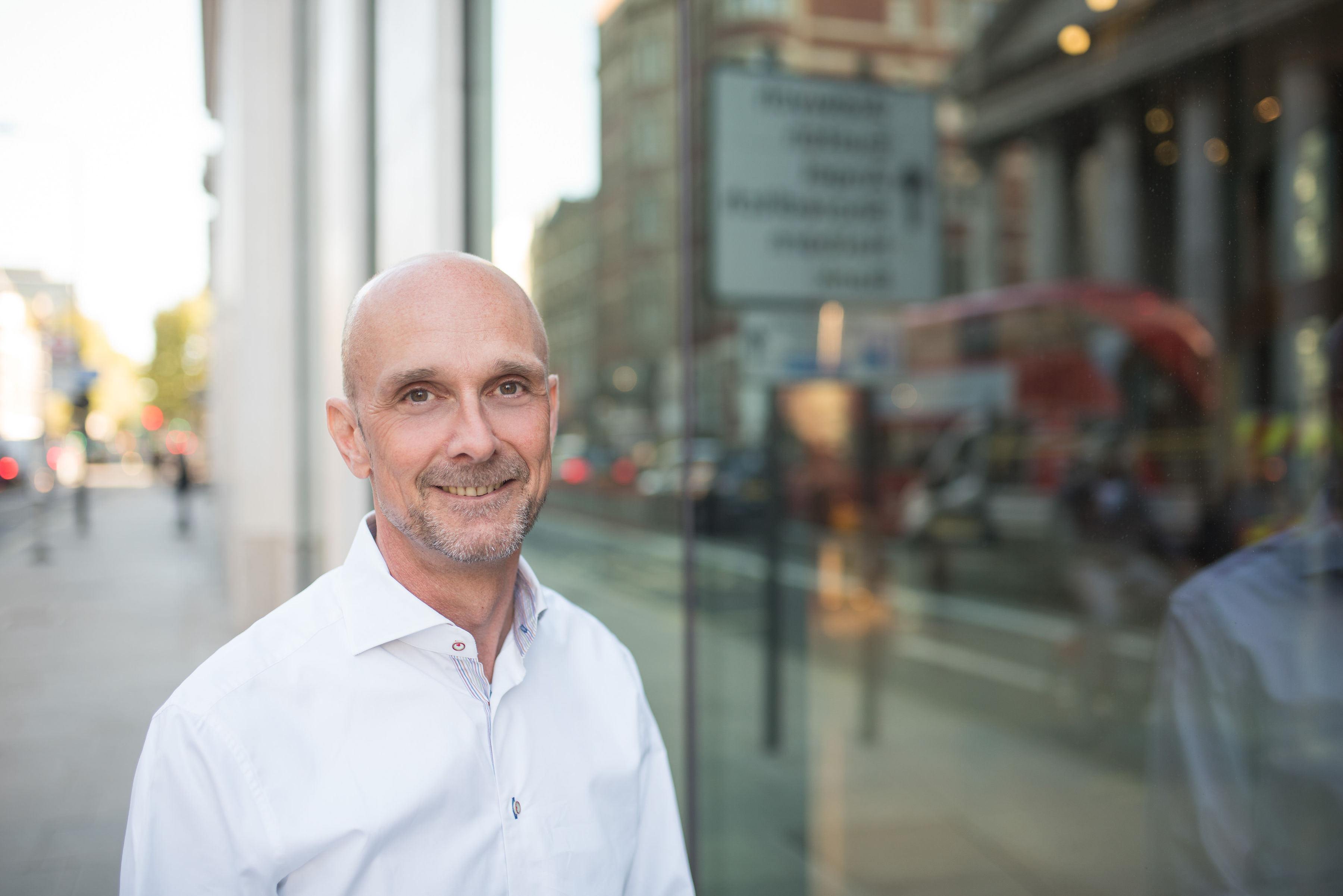
Per Falk from Ferring about NLSDays’ Gender Science super session
interviewed by Helena Strigård, CEO, SwedenBIO
|
Earlier this year, Ferring Pharmaceuticals announced the first use of heat-stable carbetocin for the prevention of excessive bleeding after birth. The condition is known as postpartum haemorrhage (PPH) and is responsible for a substantial share of maternal mortality with 70 000 deaths worldwide each year. The new formulation is heat-stable, meaning that it addresses a major challenge in making the treatment available in lower income countries.
In another business area of Ferring Pharmaceuticals, reproductive health, the company is advancing accessibility to parenthood. Both through clinical advancements, but also through information and awareness raising of the IVF-journey towards parenthood. Project Family Commitment aims to remove stigmas and advocate for everyone´s right to build a family.
|
Accessibility to modern care and adequate information around women´s health seems to be something that runs like a red thread through Ferring. Per Falk, President Ferring Pharmaceuticals and Keynote speaker of the Super Session “Gender Science: Reproducing for the Other 50 Percent”, do you agree with this accessibility being at the heart of Ferring's mission and vision?
Yes, fully so, at Ferring, over 60% of our research investment is focused on the traditionally underserved and under-researched area of women’s reproductive medicine and maternal health. We’ve chosen this as our focus because despite women making up half of the global population, their health needs are largely underserved and underfunded. The women’s healthcare sector faces unique challenges: from stigmas surrounding reproductive health to a lack of clinical trial data for women more broadly.
In another business area of Ferring Pharmaceuticals, reproductive health, the company is advancing accessibility to parenthood. Both through clinical advancements, but also through information and awareness raising of the IVF-journey towards parenthood. Project Family Commitment aims to remove stigmas and advocate for everyone´s right to build a family.
|
Would you say that research for healthcare adapted to a female biology is underfinanced even?
Indeed, it is. The 2019 Forbes reported that only 4% of the overall funding for research and development for healthcare products and services is focused on women’s health. And when it comes to maternal health, the numbers are even more stark. A gender data gap currently exists in healthcare, with investment in the development of treatments and services for women’s health significantly lower than investment in men’s health. These challenges have not deterred the research and development teams at Ferring though to continue to invest and pursue research, exploration, and innovation in this area.
|
So, we are clearly just starting to investigate the other 50% and how existing drugs as well as new ones could have different effects and efficiency for men and women. What is the rationale to do so? To rethink for the other 50% and what do you foresee that we will unveil during this journey?
For several decades, healthcare products and solutions were designed, developed, and delivered without much attention to the fact that healthcare needs are different for men and women, considering their physiological differences. My own view is that there are some fundamental shifts that need to happen in how we, as a society, understand and prioritise healthcare for women.
|
So, what can we do, as a society?
Firstly, we can all do something to advocate for investing in women’s health. We can all hold our elected politicians and policy makers to account for decisions that disproportionately impact women. In the healthcare research and development field specifically, we can resolve to seek out health data gaps for women and work to improve how we invest in and collaborate on research to improve women’s health.
|
What can you do as a company to push for this development?
One example is Ferring’s #ProjectFamily Commitment which advocates for everyone’s right to a family and is a commitment to building families of every shape and size. One of the key areas of focus for this is closing gender and racial inequality gaps in reproductive medicine and maternal health.
|
So, how do you do that? How is this commitment reflected in your company priorities?
We focus at supporting conditions with high unmet need such as pregnancy-related conditions, and infertility. In addition, Ferring is striving to expand its scope and horizon for improving reproductive health by addressing the male component of infertility, which is as large and impactful as the female but without any solutions to date. In total, Ferring has ongoing clinical trials involving 5,000 patients in the reproductive medicine and maternal health field and a very active drug discovery effort into these and other areas, such as endometriosis and onco-fertility. Ferring also collaborates with like-minded companies to drive forward research and patient care.
|
That is interesting, can you tell us about the possibility to enter frontline R&D partnerships with companies and academia to this end, the rethinking for the other 50% purpose that is.
We have lots of collaborations with world-class academic groups. For example, Ferring has established the Center for Translational Microbiome Research together with the Karolinska Institute focused on pregnancy loss and pre-term birth. The collaboration is investigating the role of the microbiome in these areas of high unmet need through six clinical studies involving approximately 6,000 women and babies. We also work with and support other organizations, such as the March of Dimes and the Chinese Academy of Sciences to forward better understanding of the underlying causes on fertility problems and diseases of pregnancy. One interesting area of basic and translational research we address in this way is the function of the placenta. The placenta and its roles in healthy pregnancies and diseases of pregnancies remains poorly understood. If we wish to find new ways to diagnose, prevent and treat diseases of pregnancy we need more research efforts and support to groups exploring this area. It is surprising that, given the incidence of these diseases and their severe consequences, there are so limited efforts to find solutions.
In addition to academic collaborations and support we also partner with innovative biotech companies such as Igenomix and MyBiotics with the goal of developing innovative diagnostic and therapeutic strategies.
In response to the COVID-19 pandemic, Ferring set up Investigational Research Grants in Reproductive Medicine and Maternal Health (RMMH), designed to provide funding to gather data related to conception, pregnancy, and neonatal health during the COVID-19 pandemic, and ensure that people with fertility issues and pregnant women are not forgotten in research efforts. In total, Ferring awarded 71 grants to research projects from 22 different countries.
We also initaited the racial equality grants.
The Ferring Innovation Grants Programme for Racial Equality in Reproductive Medicine and Maternal Health aims to fund projects in basic and translational research, clinical research, epidemiology and prevention research and social science research.
Winners will be notified end of 2021 and we hope to share more about this at the NLS event in 2022!
|
We have talked a lot about gender science from the perspective of neglecting women’s biology, but would you agree that it concerns men just as much?
Yes! As part of our commitment to dispelling the common myth that ‘infertility is a women’s issue’, Ferring is researching factors contributing to male fertility issues. We currently have two Ferring-owned research projects into male fertility issues, as well as a collaboration with Chinese Academy of Sciences which includes early basic research in reproductive biology including male infertility.
|
How do you think big pharmas and big biotechs will adapt to the pressure to consider different biology for men and women alike, not just on new drugs and therapies but also on existing ones?
There is currently a wave of change with healthcare companies increasingly recognising the need to better serve women, whether for medical needs that are specific to them, or bringing in gender specificity for devices and solutions which are common to both women and men.
For instance, there are fundamental differences in the way women metabolise drugs compared to men and hence there is a critical need for more inclusion of women in clinical research and trials.
In the healthcare research and development field specifically, we can resolve to seek out health data gaps for women and work to improve how we invest in and collaborate on research to improve women’s health.
|
Sounds like we stand in front of a revolution in rethinking medicine! Looking ahead, how can you keep on challenging yourself as a big pharma to stay open and to be open to collaboration in new ways?
The success of Ferring Pharmaceuticals, a privately-owned company with around 6,000 employees worldwide, can be attributed to the company´s openness towards collaboration, both with other companies in the field and with other sectors. Our commitment covers the full patient journey, from conception to birth, and has been shaped around the urgent needs of our patient communities. As well as collaborating with people impacted by medical fertility issues to help inform first-hand our approach, Ferring is part of public-private partnerships to overcome some of the biggest challenges in this area, for example reducing global maternal and infant mortality.
|
Such as?
The CHAMPION trial was conducted by the World Health Organization (WHO), using Ferring’s heat-stable carbetocin, and funded by MSD for Mothers. Ferring has also set out its commitment to making heat-stable carbetocin available at an affordable and sustainable access price in public sector healthcare facilities in low and lower-middle income countries and is supporting advocacy at local government level for heat-stable carbetocin.
|
I am personally very much looking forward to this session at NLSDays 2022 and to welcome rethinking companies to our exhibition and partnering opportunities. So, lastly, I wish to ask, how do you look upon NLSDays as a platform for actors to meet and greet, forming new B2B partnerships etc.?
Nordic Life Science Days is an important conference dedicated to the life science industry.
Platforms such as this are crucial to presenting and sharing ideas which have the potential to positively impact on health outcomes. By attending, I hope to connect with like-minded individuals, spark discussion in important areas and hopefully help effect change needed in addressing gender disparities in healthcare.
|
Thank you so much Per and see you in Malmö!
|
 Super Session 5 Super Session 5
29 September 2022
Gender Science: Reproducing for the Other 50%
|
|